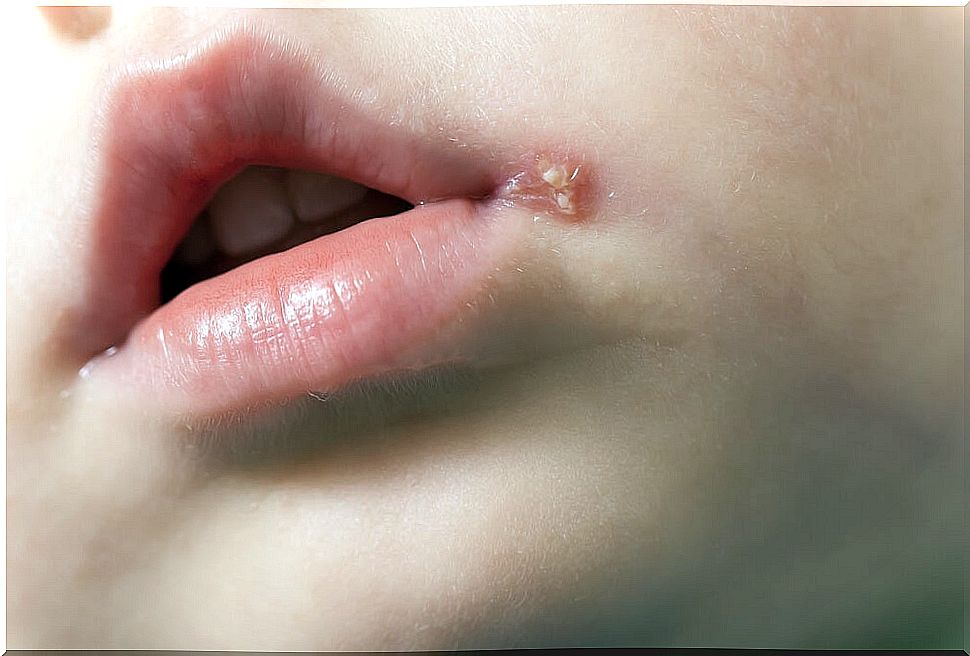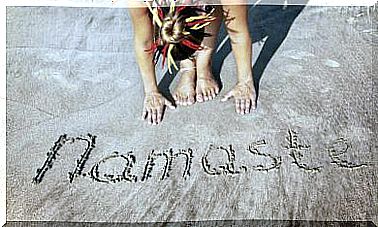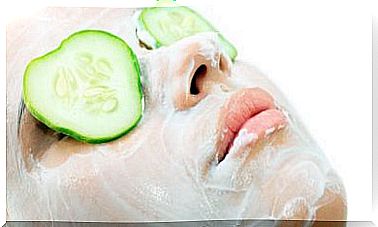What Is A Cold Sore?
Cold sores are a contagious infection that affects a significant part of the population. Learn what its symptoms are and how it should be treated.

Cold sores are an infection that can appear on the lips, gums, or mouth in general. It is caused by the herpes simplex virus, and its lesion is usually vesicular with small blisters.
There are two strains of this virus, VSH-1, which causes cold sores, and VSH-2, which causes genital herpes. According to information provided by the BMJ Clinical Evidence , between 20% and 40% of adults are affected at some point. However, primary infection usually occurs in childhood and the virus is believed to remain latent in the trigeminal ganglion.
What are its causes, symptoms and treatment? Next, we inform you in detail.
Causes of cold sores
After overcoming the symptoms of the first infection, the virus remains inactive in the body. When it is activated again, it produces again those vesicular lesions called fever.
According to data from the World Health Organization (WHO), about 3.7 billion people under the age of 50 are infected in the world. The contagion is rapid during the presence of the lesions, only physical contact with another person is necessary for it to occur. But it must be said that it is not a hereditary virus.

Also the use of objects that have been in contact with the injury are capable of producing contagion : razor blades, towels, lipstick, etc.
Why is it produced?
After the first infection of the virus, it can reappear for different reasons, such as:
- Lowering of defenses.
- Stress.
- Sunbathing excessively.
- Menstruation.
- Hormonal changes.
- Fever.
Risk factor’s
There are factors that some people present and that favor the appearance of this virus, such as:
- People with a depressed immune system.
- Patients with immune diseases, such as HIV / AIDS.
- People with severe burns.
- Patients under chemotherapy treatment.
- Those people who are under the treatment of medication to avoid transplant rejection.
Cold sore symptoms
They can be mild or severe, depending on each person, there are even those who become asymptomatic.
However, experts indicate that the first symptoms usually appear 1-2 weeks after infection and last between 7 and 15 days. Among the most common are:
- Itching in the area of the injury.
- Local heat.
- Appearance of blisters: they usually appear at the junction between the lip and the skin
- Tingling in the area near the lips (before the appearance of the lesion).
- Swelling in the lips
- Suppuration and scabs: the blisters can join and explode, secreting liquids and forming a subsequent scab.

There may also be sore throat or swollen lymph nodes. Likewise, the areas where they appear most frequently are:
- Throat.
- Lips.
- Gums
- Mouth.
- Nostrils.
Cold sore treatment
As explained by several members of the Medical Center of the University of Leiden (Netherlands), to treat this pathology there are two types of options.
On the one hand, the topical treatment; which is based on the application of an antiviral cream in the area. But keep in mind that it is only effective if it begins to be applied from the first discomfort.
On the other hand, if systemic drug administration is necessary, the same antivirals are used but administered in tablets. Along these lines, the drugs used with a previous medical prescription are:
- Acyclovir.
- Pharmaciclovir.
- Valaciclovir.
Also, there are treatments such as pain relievers to avoid discomfort. And, apart from this, there are also tips that help improve or avoid them:
- Avoid sharing utensils with people who present it.
- Use lip balm to prevent them from drying out.
- Eat a healthy diet.
- Avoid kissing.
Tests to detect it
When there is a case of repetitive herpes, or the lesions are larger than what is considered normal, different tests are usually done. The most frequent is the performance of a virological culture of the vesicles in the initial phase of the disease.
Do not ignore the problem, take action to combat cold sores.
Cold sores is a contagious infection caused by the herpes simplex virus. Although the primary infection occurs in childhood, it can recur in adulthood due to various factors.
If you have symptoms, make a consultation with your doctor to detect it early. He will be the one to diagnose it and can help you control it with the use of antivirals.









